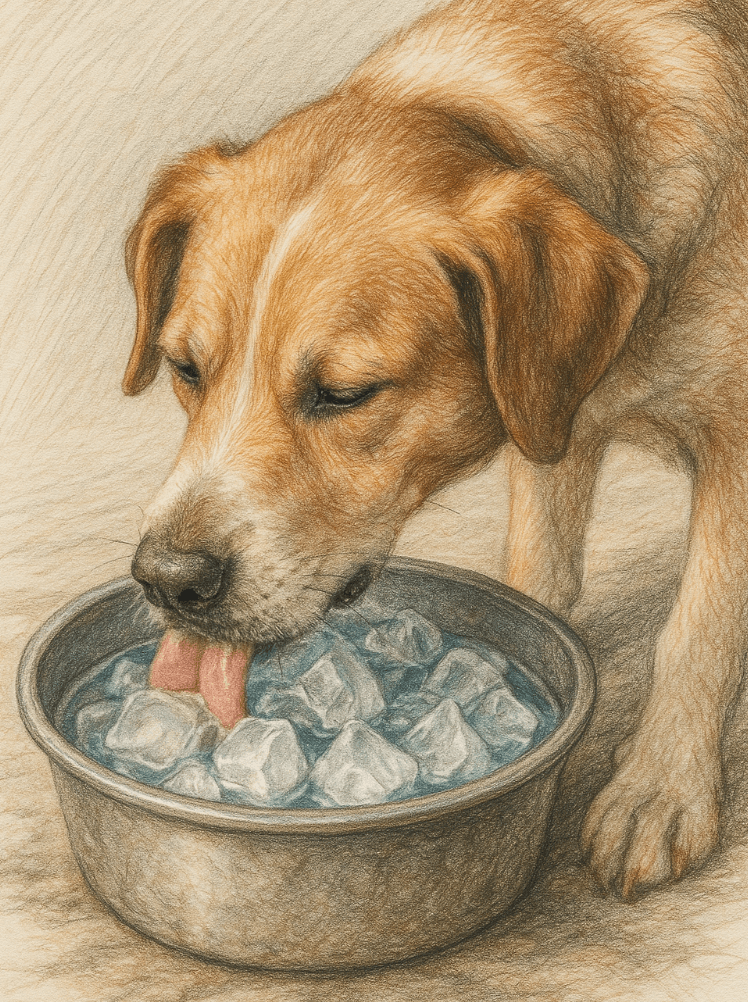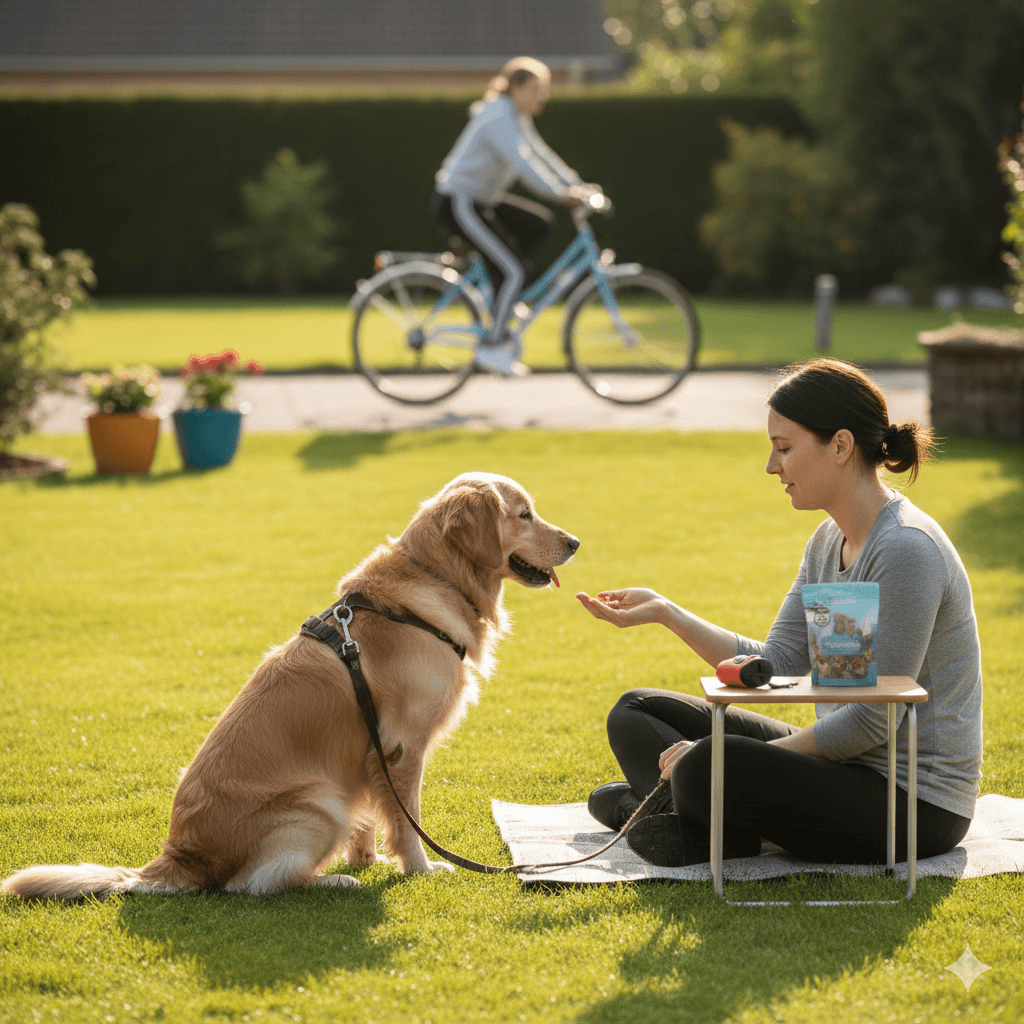Is Ice Water Bad for Dogs?
As a dog owner, you’ve probably wondered whether giving your furry friend ice water is safe. After all, dogs love to cool off on hot days, and ice water might seem like the perfect solution. However, some pet owners worry that ice water could harm their dogs, especially when it comes to digestion or even bloat. So, is ice water truly bad for dogs, or is this just a myth? In this blog post, we’ll dive into the science behind ice water consumption, address common concerns, and provide practical tips to keep your dog hydrated and healthy. Whether you’re at home or out on a sunny hike, understanding how to hydrate your pup safely will give you peace of mind.
Expert Insight on Ice Chewing in Cats
“And chewing on anything hard frequently can cause significant wear to tooth enamel. Using smaller cubes or shavings and giving ice in moderation can help avoid these issues.”
— PetMD
Potential Risks of Giving Ice Water to Dogs
While ice water isn’t inherently dangerous for most dogs, there are certain risks associated with serving it in large quantities or under specific conditions. Here’s what you need to know to avoid potential issues.
Risk of Bloat:
Ice-cold water may cause stomach muscles to contract, potentially leading to gastric dilatation-volvulus (GDV), commonly known as bloat, in predisposed breeds.Tooth Sensitivity:
Some dogs have sensitive teeth, and extremely cold water can cause discomfort or pain, similar to how humans react to icy drinks.Digestive Upset:
Sudden exposure to very cold water might shock a dog’s digestive system, leading to vomiting or diarrhea in sensitive individuals.Dehydration Mismanagement:
Offering only ice water during intense heat may not rehydrate a dehydrated dog effectively, as they might not drink enough due to the cold temperature.Choking Hazard from Ice Cubes:
Small dogs or aggressive chewers might accidentally swallow large ice cubes, posing a choking risk or causing dental damage.
Understanding these risks allows you to make informed decisions about offering ice water to your dog responsibly.

Benefits of Ice Water for Dogs (When Used Wisely)
Despite the concerns, ice water can offer several benefits when given appropriately. It’s all about moderation and knowing your dog’s individual needs.
Cooling Down Overheated Dogs:
On scorching summer days, ice water helps lower a dog’s body temperature quickly, preventing overheating or heatstroke.Refreshing Treats:
Adding ice cubes to your dog’s water bowl creates a fun and engaging way for them to stay hydrated while playing.Reducing Swelling or Inflammation:
Cold water can soothe minor injuries, such as paw pad burns or insect bites, by reducing swelling and discomfort.Encouraging Hydration:
Some dogs find ice water more appealing than room-temperature water, encouraging them to drink more frequently.Post-Exercise Recovery:
After vigorous activity, ice water aids in cooling down muscles and preventing overheating without overloading the stomach.
By using ice water thoughtfully, you can enhance your dog’s comfort and well-being during warm weather or after strenuous activities.
Check this guide 👉Dog Water in Ear: Best 7 Health Tips!
Check this guide 👉Can I Give My Dog Alkaline Water? Best 7 Expert Tips!
Check this guide 👉What to Do If Your Dog Drank Soapy Water: Best 7 Tips!
When Ice Water Is Safe for Dogs | When to Avoid Ice Water |
|---|---|
Hot weather to prevent overheating | Dogs prone to bloat or GDV |
Adding small ice cubes for playful fun | Immediately after vigorous exercise |
Cooling inflamed paws or minor injuries | Puppies with developing digestive systems |
Encouraging picky drinkers to hydrate | Dogs with tooth sensitivity or dental issues |
Post-surgery recovery under vet guidance | Dehydrated dogs needing rapid rehydration |
How to Safely Serve Ice Water to Your Dog
If you decide to give your dog ice water, following these tips ensures their safety and maximizes the benefits.
Start with Small Ice Cubes:
Use smaller ice cubes or crushed ice to minimize choking hazards and make it easier for your dog to consume.Mix with Room-Temperature Water:
Dilute ice water with lukewarm or room-temperature water to avoid shocking your dog’s system.Monitor Consumption:
Keep an eye on how much ice water your dog consumes, especially during hot weather, to prevent overindulgence.Offer Gradually After Exercise:
Wait until your dog has calmed down before offering ice water to reduce the risk of bloat or digestive upset.Consult Your Vet:
If you’re unsure about whether ice water is suitable for your dog, ask your veterinarian for personalized advice.
By taking these precautions, you can ensure your dog enjoys ice water safely and comfortably.
Signs Your Dog May Not Tolerate Ice Water Well
Every dog is different, and some may struggle with ice water more than others. Watch for these signs that indicate your dog might not handle it well.
Excessive Drooling:
Unusual drooling after drinking ice water could signal tooth sensitivity or irritation in the mouth.Refusal to Drink:
If your dog avoids ice water altogether, they may find it uncomfortable or unappealing.Vomiting or Diarrhea:
These symptoms suggest that the cold water has upset your dog’s stomach, requiring adjustments in how you serve it.Pawing at the Mouth:
This behavior often indicates discomfort, possibly due to overly cold water or undigested ice cubes.Lethargy or Discomfort:
A sudden lack of energy or visible distress might mean your dog is struggling with the effects of ice water.
Recognizing these signs early helps you adjust your approach and prioritize your dog’s health.
Common Myths About Ice Water and Dogs
There are many misconceptions about giving ice water to dogs. Separating fact from fiction helps you make better decisions for your pet.
Myth: Ice Water Always Causes Bloat:
While bloat is a concern for some breeds, it’s not a universal risk and depends on factors like breed, size, and activity level.Myth: Dogs Hate Ice Water:
Many dogs enjoy the novelty of ice water, though preferences vary based on individual tastes and experiences.Myth: Ice Water Is Better Than Regular Water:
While ice water cools faster, plain water is equally effective for hydration in most situations.Myth: Ice Water Prevents Heatstroke:
Ice water alone won’t prevent heatstroke; shade, rest, and gradual cooling are also essential.Myth: All Dogs Can Handle Ice Cubes:
Smaller dogs or those with dental issues may struggle with large or hard ice cubes.
Dispelling these myths promotes a clearer understanding of how ice water affects dogs.
Alternative Ways to Keep Your Dog Cool
If you’re hesitant about using ice water, there are plenty of other ways to help your dog beat the heat safely.
Frozen Treats:
Homemade frozen treats made from dog-safe ingredients like peanut butter or yogurt provide a cooling snack.Cooling Mats:
Specialized mats filled with gel activate when your dog lies on them, offering instant relief from the heat.Kiddie Pools:
Shallow pools allow dogs to splash around and cool off without fully submerging themselves.Wet Towels or Bandanas:
Damp cloths placed on your dog’s neck or back help lower their body temperature gradually.Shaded Areas:
Providing ample shade outdoors ensures your dog has a cool spot to retreat to during peak sun hours.
These alternatives cater to various preferences and lifestyles, ensuring your dog stays comfortable in hot weather.
Tips for Hydrating Active Dogs Safely
Active dogs require extra attention to hydration, especially during intense workouts or hot weather. Follow these tips to keep them safe and refreshed.
Carry Portable Water Bottles:
Invest in a portable water bottle designed for dogs to ensure they stay hydrated on walks or hikes.Offer Water Frequently:
Provide small amounts of water regularly instead of large quantities all at once to prevent bloating.Use Collapsible Bowls:
Lightweight, collapsible bowls are convenient for travel and make it easy to offer water anywhere.Avoid Extreme Temperatures:
Stick to lukewarm or slightly cool water for active dogs to maintain optimal hydration levels.Watch for Signs of Dehydration:
Symptoms like dry gums, lethargy, or excessive panting indicate your dog needs immediate hydration.
With these strategies, you can support your active dog’s hydration needs while minimizing risks.
Frequently Asked Questions About Ice Water for Dogs
Can puppies drink ice water?
Puppies can drink ice water in moderation, but their developing digestive systems may be more sensitive to extreme temperatures.
Does ice water cause bloat in all dogs?
No, bloat is more common in deep-chested breeds and those predisposed to GDV, but monitoring is still important for all dogs.
How much ice water is too much?
There’s no set limit, but excessive ice water can lead to dehydration or digestive issues if it discourages regular water intake.
What should I do if my dog swallows an ice cube whole?
Most dogs digest small ice cubes without issue, but contact your vet if you notice signs of choking or discomfort.
Are there alternatives to ice water for cooling dogs?
Yes, options like frozen treats, wet towels, or kiddie pools can help keep dogs cool without relying solely on ice water.
Finding Balance in Hydrating Your Dog
Ice water can be a refreshing and beneficial treat for dogs when offered responsibly. By understanding the potential risks and benefits, you can tailor your approach to suit your dog’s unique needs. Whether you’re cooling them down on a hot day or encouraging hydration, always prioritize their comfort and safety. Remember, every dog is different, so paying attention to their reactions and consulting your veterinarian ensures you’re making the best choices. With proper care, you can keep your four-legged friend happy, hydrated, and healthy all year round.
How to Desensitize a Dog: Best 7 Expert Tips! – Learn step-by-step methods to help your dog overcome fears and build confidence safely.
Cat Postpartum Depression: Best 7 Expert Tips! – Learn to spot signs, support your cat, and ensure a healthy bond with her kittens during recovery.
Dog Postpartum Depression: Best 7 Expert Tips! – Learn to spot symptoms, support your dog’s recovery, and ensure a healthy bond with her puppies.
Pemphigus Erythematosus in Cats: Best 7 Expert Tips! – Learn to recognize symptoms, manage flare-ups, and improve your cat’s quality of life.




